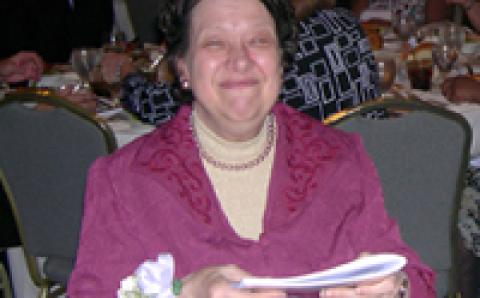Moses Chung
Born: Incheon, South Korea
Family: wife, Eunae, and children Alvin and Jewel
Education: Calvin College, 1993; Calvin Theological Seminary, M.Div. 1999
Churches Served:
Minister of discipleship, First CRC, Bellflower, Calif., 1999-2003
Associate pastor, New Life Community Church (RCA), Artesia, Calif., 2003-2007
Executive pastor, Sooyoungro Presbyterian Church, Busan Korea, 2007-2011
Passion: “To see God’s Spirit move in all hearts and lives, young and old.”
Moses Chung, director of Christian Reformed Home Missions (CRHM), recalls a day many years ago when a disheveled-looking man walked into the office of his church in California.
The man was obviously upset, so Chung asked him to sit down and simply listened to him vent. When the man finished, he looked at Chung and admitted that he had walked into the church hoping to get some money. But he had realized that what he really wanted was to talk to someone who would listen.
The Power of Listening
Chung, who also served as a pastor at a large church in Korea before being chosen to lead CRHM, says that listening to people and paying attention, trying to discern what they need, has always been an important aspect of his ministry.
“Even though we are all sinners and need the grace of God every day, every human being is a glorious creation of God, and we need to pay attention to them,” he says.
In recent months, Chung has spent a good deal of time visiting with and listening to a wide range of Christian Reformed congregations, CRHM supporters, and others across North America, trying to understand what churches need.
Some of what Chung learned has been disturbing. He had a good idea before he started the visits that some churches were in trouble, he says. But now he understands that many congregations are in crisis as they—like churches in many other North American denominations—struggle to respond to the complex challenges of a globalized world.
Anxiety and Confusion
Chung says that a sizeable portion of CRC congregations and their leaders feel deep anxiety and confusion about the future and are wondering how they will be able to survive in this new time of challenges and change.
Many churches, Chung says, have an aging membership. Meanwhile, young people and young families are leaving or not joining. Sometimes this has resulted in congregations closing their doors.
He also learned that churches are perplexed and unsure of how to best use rapid technological advances for ministry. Social changes such as the growth of pluralistic and often anti-Christian movements have taken their toll as well, calling the Christian faith into question.
“It is sobering to think of what is happening to churches in North America,” Chung says. “We no longer have as much of a voice or impact on society at large.”
The CRC and its agencies are also in a time of great transition, he adds. CRHM, as well as others, must find ways to work in a “church and mission context” that is much different today than it was 20 or 30 years ago.
“We are in a new world, where our traditional ways of being and doing church with a European, monoethnic denominational church background raises some hard questions about our identity and what we are to do as an agency,” says Chung.
Responding to Hard Questions
Based on what he has learned, Chung is in the process of crafting a mission that seriously considers and responds to the hard questions about identity and ministry.
He is convinced, he says, that this should not be a time of despair but of hope. He acknowledges the distress churches are experiencing, but Home Missions is also looking at the challenges as “abundant opportunities.”
Creative prayer-led programs and actions will allow CRHM to continue living out its mandate to “lead the CRC in its task of bringing the gospel to the people of North America, drawing them into fellowship with Christ and his church.”
Seeking God’s Will
As part of its strategy, CRHM will be emphasizing the ministry of prayer by encouraging and helping agency leaders and others to develop their own lives of meaningful prayer and to join others in prayer to discern God’s will.
"We want to help churches flourish in God's mission to reach and bless our neighborhoods."
“Discern is the key word,” says Chung. “Discerning God’s will for us by seeking his face in prayer is a key for Home Missions and the denomination. We need to pray because we want to listen, because it is not about what we want to do, but what God wants to do in and through us.”
In next several months, Home Missions plans to explore creative ways of approaching church planting and campus ministries—ministries for which the agency is well known. It also will continue its work in the areas of prayer, leadership development, Coffee Break programs, and discipleship, as well as through grants to partner ministries.
In addition, says Chung, CRHM will invest energy in developing pastors who encourage people in their congregations to participate in God’s mission for North America right in their own communities.
“We want to help churches flourish in God’s mission to reach and bless our neighborhoods.”
He says CRHM will provide resources and coaches to help pastors and churches recognize their great potential and will help them to use their potential to grow and expand their ministries.
“I believe the CRC has been blessed richly with so many buried treasures—congregations are filled with people deeply dedicated and devoted to the causes of Christ’s kingdom,” Chung says.
CRC members across North America are, among other things, helping the homeless, educating inner-city children and recent immigrants, serving and encouraging people who are poor, and providing disaster relief.
But there is much more to be done.
Cultivating Movements
In a broad sense, CRHM is developing the vision of being an agent of prayer and encouragement for all CRC congregations and institutions in North America.
“We need to tap into and follow the movement of what God is doing,” says Chung.
“We need to take the posture of coming alongside churches (and institutions), whether they are new or older, of listening to them and helping to reawaken people to the large God we profess.
“I believe that we have the chance to help catalyze and cultivate the movements of God in our church and to play a role in bringing the kingdom of God alive on this earth.”
Home Missions at a Glance
- Serves 1,080 churches
- Through the CRC and individual supporters, provides grant funding to 120+ ministries in the U.S. and Canada
- Includes seven regional teams and four ethnic leaders and advisers
- Connects with 47 classes through regional, ethnic, and goal specialist leaders
- Currently provides financial assistance to 80 new churches
- Supports 34 campus ministries
- Provides Leadership Development Networks and pastor/ministry team clusters
- Active in 500 Christian Reformed churches and nearly 400 churches from other denominations through Coffee Break and other Home Missions-supported small group ministries
Campus Pastor Explores ‘Big Questions’
There’s a reason why Sam Lee is passionate about reaching young people with the gospel.
“I came to faith in Christ when I was a student at Dalhousie University,” Lee says. “Just like it was for me, university is a time when most students ask a lot of big questions about life, about God.”
Lee has turned his passion into a profession, leading a new part-time Home Missions-supported campus ministry at Kwantlen Polytechnic University in Richmond, B.C. The university has more than 20,000 students.
The campus ministry started when Lee was leading a small group for young people at TheTapestry, a church plant in Richmond started with help from Home Missions.
As campus pastor, he’s working to connect the church and campus, as well as to open students’ minds to Christ. Sometimes both of those goals align. “I started a spiritual discussion group called ‘The Wisdom of Each Other,’ which attracted a good crowd of people from different faiths,” he says. “Afterward, a Chinese Buddhist student said he’d be interested in attending a church to meet more young people! So I invited him to TheTapestry.”
While that student hasn’t yet come to The Tapestry, he has shown up to the discussion group again. “
From Darkness to Light
The corner of 8th Street and Butler was a dark place for Anthony, a Philadelphia man in his mid-60s. It’s where the former drug addict spent many years dealing drugs. “The drug capital of the world,” he calls it.
But God’s light also fills that corner. Nearby is 8th Street Community Church, a Home Missions-supported ministry where Anthony met Jesus. Now, Anthony prays every day. “I’m blessed to wake up every morning,” he says. “God is truly good.”
8th Street Community Church is one of a cluster of eight new churches spawned by an established church, Spirit and Truth Fellowship.
Pastor Andy Kim is one example of dozens of new leaders called to live among people who are poor and marginalized in this urban pocket of North Philadelphia.
This is where, every day, they can meet people like Anthony.
Coaching Congregational Leaders
To help his church reach out better to the local community, Rev. Nathan Visker, pastor of Ferrysburg Community Christian Reformed Church in Spring Lake, Mich., didn’t have to look far.
Visker turned to the Home Missions Great Lakes regional team, which uses coaching to help ministry leaders discern God’s call for their ministry.
The Great Lakes team connected Visker with a coach, Rev. Jeff Boersma from nearby Muskegon. Boersma worked with Visker to identify and strengthen some of the church’s missional ministries. Visker was able to focus more on the church’s letter-writing ministry to prisoners, a meals program for local residents, and congregational prayer and discernment.
“Meeting with my coach helped me gain clarity around the role I play in my church. More importantly, it helped me identify next steps and tasks that needed to be achieved,” says Visker. “Although I could have done some of this on my own, I know I wouldn’t have. I found the perspective, encouragement, and accountability I needed to get me going again.”
Something 2 Share
We all have something to share, something that is filled with hope, with life. It’s the gospel of Jesus. But we have to be willing to share the gospel message personally and directly in our neighborhoods in North America and communities worldwide.
This spring, Home Missions and World Missions are once again partnering to help churches celebrate the period from Easter to Pentecost (Sunday, April 8, through Sunday, May 27).
The agencies have developed the following free resources for churches around the theme “Something 2 Share”:
- Easter bulletins and inserts for Home Missions and Pentecost bulletins and inserts for World Missions (all materials available in English, Korean, and Spanish)
- DVD with two videos (one from Home Missions and one from World Missions)
- Poster
- Children’s bulletin masters
- Bulletin announcements
- To watch an inspiring video and find out more, visit crcna.org/something2share
About the Authors
Ben Van Houten is a senior writer for Christian Reformed Home Missions.
Chris Meehan is a freelance writer and commissioned pastor at Coit Community Church in Grand Rapids, Mich.







